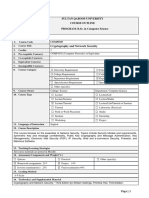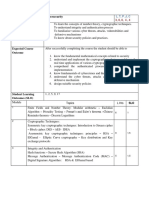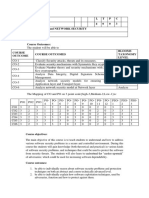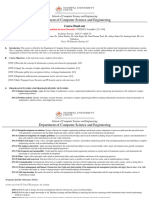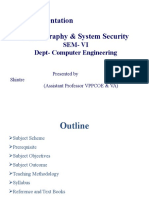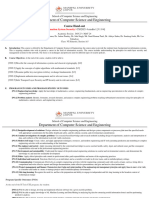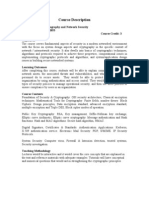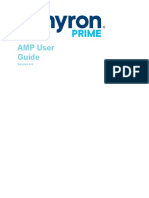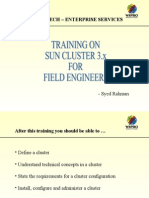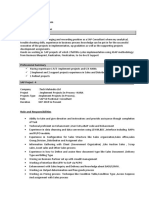0% found this document useful (0 votes)
108 views4 pagesCourse Handout - Cryptography
This 3 credit course on Cryptography aims to provide an understanding of cryptography principles and security protocols. Topics include classical encryption techniques, symmetric and asymmetric cryptography, hash functions, digital signatures, and network security. Assessment includes assignments, a midterm exam, and an end-term exam. The course outcomes are for students to understand computer security concepts, encryption techniques, public key cryptography, key management, hashing, and digital signatures.
Uploaded by
DrPurnendu PandeyCopyright
© © All Rights Reserved
We take content rights seriously. If you suspect this is your content, claim it here.
Available Formats
Download as PDF, TXT or read online on Scribd
0% found this document useful (0 votes)
108 views4 pagesCourse Handout - Cryptography
This 3 credit course on Cryptography aims to provide an understanding of cryptography principles and security protocols. Topics include classical encryption techniques, symmetric and asymmetric cryptography, hash functions, digital signatures, and network security. Assessment includes assignments, a midterm exam, and an end-term exam. The course outcomes are for students to understand computer security concepts, encryption techniques, public key cryptography, key management, hashing, and digital signatures.
Uploaded by
DrPurnendu PandeyCopyright
© © All Rights Reserved
We take content rights seriously. If you suspect this is your content, claim it here.
Available Formats
Download as PDF, TXT or read online on Scribd
/ 4
